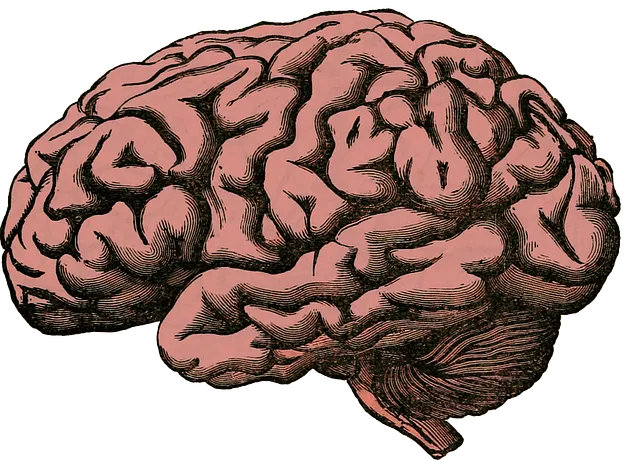The Denver Kaiser Permanente behavioral health center is a leader in combating mental illness stigmas through innovative services and community engagement. They offer comprehensive care, cultural sensitivity, and educational programs to promote empathy and reduce discrimination. By collaborating with professionals and diverse individuals, they ensure accurate and empathetic media portrayal of mental health issues, leveraging resources like the Mental Health Policy Analysis and real-life stories to enrich depictions. Their efforts include the production of the Mental Wellness Podcast Series, empowering individuals through Mental Wellness Coaching, and promoting effective stress reduction strategies to normalize conversations around mental health.
Mental illness representation in media significantly influences public perception and understanding of psychological conditions. This article explores strategies to challenge mental health stigmas perpetuated by media, focusing on the pioneering work of Denver Kaiser Permanente Behavioral Health Center. We delve into effective solutions for promoting accurate, empathetic, and responsible media portrayal, with a view to enhancing societal attitudes towards mental illness. By examining these approaches, we aim to contribute to a more inclusive and supportive narrative in the media landscape.
- Understanding the Impact of Media Portrayal on Mental Health Perception
- The Role of Denver Kaiser Permanente Behavioral Health Center in Challenging Stigmas
- Implementing Effective Solutions: Strategies for Accurate and Empathetic Media Representation of Mental Illness
Understanding the Impact of Media Portrayal on Mental Health Perception

Media portrayal plays a significant role in shaping societal perceptions about mental health. The way mental illnesses are depicted in movies, television shows, and news media can influence public understanding and attitudes, which in turn impacts how individuals with mental health challenges are treated. Research has shown that negative or inaccurate media representations contribute to stigma, discrimination, and even barriers to seeking treatment. For instance, the Denver Kaiser Permanente behavioral health center has initiated community outreach programs aimed at promoting awareness and understanding of various mental health conditions.
Implementing a Community Outreach Program, such as those at the Denver Kaiser Permanente behavioral health center, is one effective strategy to combat these negative effects. By educating the public, dispel myths, and share Mind Over Matter principles, these programs can foster empathy and reduce stigma. Moreover, they empower individuals with mental health issues by providing them with tools to advocate for themselves and access available resources. A Risk Assessment for Mental Health Professionals is also crucial in ensuring that those working in this field are equipped to handle complex cases while maintaining ethical standards and patient safety.
The Role of Denver Kaiser Permanente Behavioral Health Center in Challenging Stigmas

The Denver Kaiser Permanente Behavioral Health Center plays a pivotal role in challenging mental illness stigmas through innovative approaches and community engagement. They offer comprehensive services, integrating advanced therapeutic techniques with holistic wellness programs. One notable initiative is their Mental Wellness Coaching Programs Development, which focuses on empowering individuals to manage stress and improve overall mental health using tailored strategies.
The center also prioritizes Cultural Sensitivity in Mental Healthcare Practice, ensuring diverse communities feel welcomed and understood. Their inclusive environment fosters open conversations about mental wellness, reducing the isolation often associated with these issues. Through various initiatives, including educational workshops and awareness campaigns, Denver Kaiser Permanente Behavioral Health Center is making strides in normalizing conversations about mental health and promoting effective Stress Reduction Methods for all.
Implementing Effective Solutions: Strategies for Accurate and Empathetic Media Representation of Mental Illness

To address the challenge of mental illness representation in media, implementing effective solutions that promote accurate and empathetic portrayal is crucial. The Denver Kaiser Permanente behavioral health center serves as a model for integrating best practices into media production. This includes collaborating with mental health professionals to ensure scientific accuracy and consulting diverse individuals living with various conditions to foster cultural sensitivity. By involving experts and individuals from different backgrounds, the center enhances the authenticity of representations, reducing stereotypes and promoting understanding.
Additionally, leveraging resources like the Mental Health Policy Analysis and Advocacy initiatives can help media creators develop nuanced narratives. Incorporating real-life stories into scripts, for instance, adds depth and humanizes experiences. Moreover, the Cultural Sensitivity in Mental Healthcare Practice guidelines are invaluable for media makers aiming to portray diverse communities accurately. Similarly, the production of a Mental Wellness Podcast Series can educate audiences while showcasing the diversity of mental health journeys, further enriching public discourse on these important issues.
Media representation plays a pivotal role in shaping public perception about mental illness. By challenging stereotypes and promoting accurate, empathetic portrayals, we can foster understanding and reduce stigma. The Denver Kaiser Permanente Behavioral Health Center serves as a beacon of hope, leading the way in transforming media narratives. Implementing their effective strategies ensures that media representation of mental illness becomes a powerful tool for education and support, ultimately contributing to a more inclusive and compassionate society.


